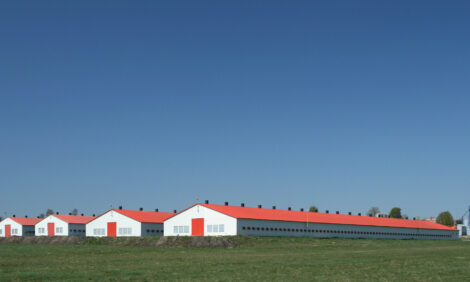



UK, US Collaborate on Animal Disease Prevention Research
UK - BBSRC and the US Department of Agriculture's (USDA) National Institute of Food and Agriculture (NIFA) will both donate £2.3 million/$2.3 million for the US-UK Collaborative Animal Health and Disease and Veterinary Immune Reagents programme.This US-UK partnership addresses high impact diseases and animal health issues relevant to both countries.
"As a leading livestock producing nation, the health of the people in the United States and around the world depends on the safety, security, and quality of the livestock we produce," said Sonny Ramaswamy, NIFA director.
"These grants enable an international research partnership that looks to control the spread of pathogens, ensuring we can effectively reduce the health risks and environmental impacts of food production worldwide."
Steve Visscher, BBSRC Deputy Chief Executive, International, said: "A growing world population means that safe and secure food supplies are going to become more and more important in the years to come. The scale of such challenges require increased international collaboration, and this partnership of co-investment between BBSRC and NIFA will allow world-leading researchers in both countries to work together to combat livestock diseases and safeguard food supplies."
Global food supply and food security are directly affected by animal production and health. They play an important role in the economy, but also in the sustainability and growth of agriculture worldwide.
Research funded through this programme will look at the biological and physiological mechanisms in relation to disease prevention in ruminants (cattle, goat, sheep), swine, poultry, equine, and aquaculture species.
Specifically, the projects will address the development of immune reagents, breeding for genetic resistance to disease, studying the ecology of diseases spread by vector insects, and developing improved vaccines.
The discoveries made through these projects will improve animal health and well-being, enhance production efficiency, and support the safety of animal products by addressing challenges facing animal agriculture.








